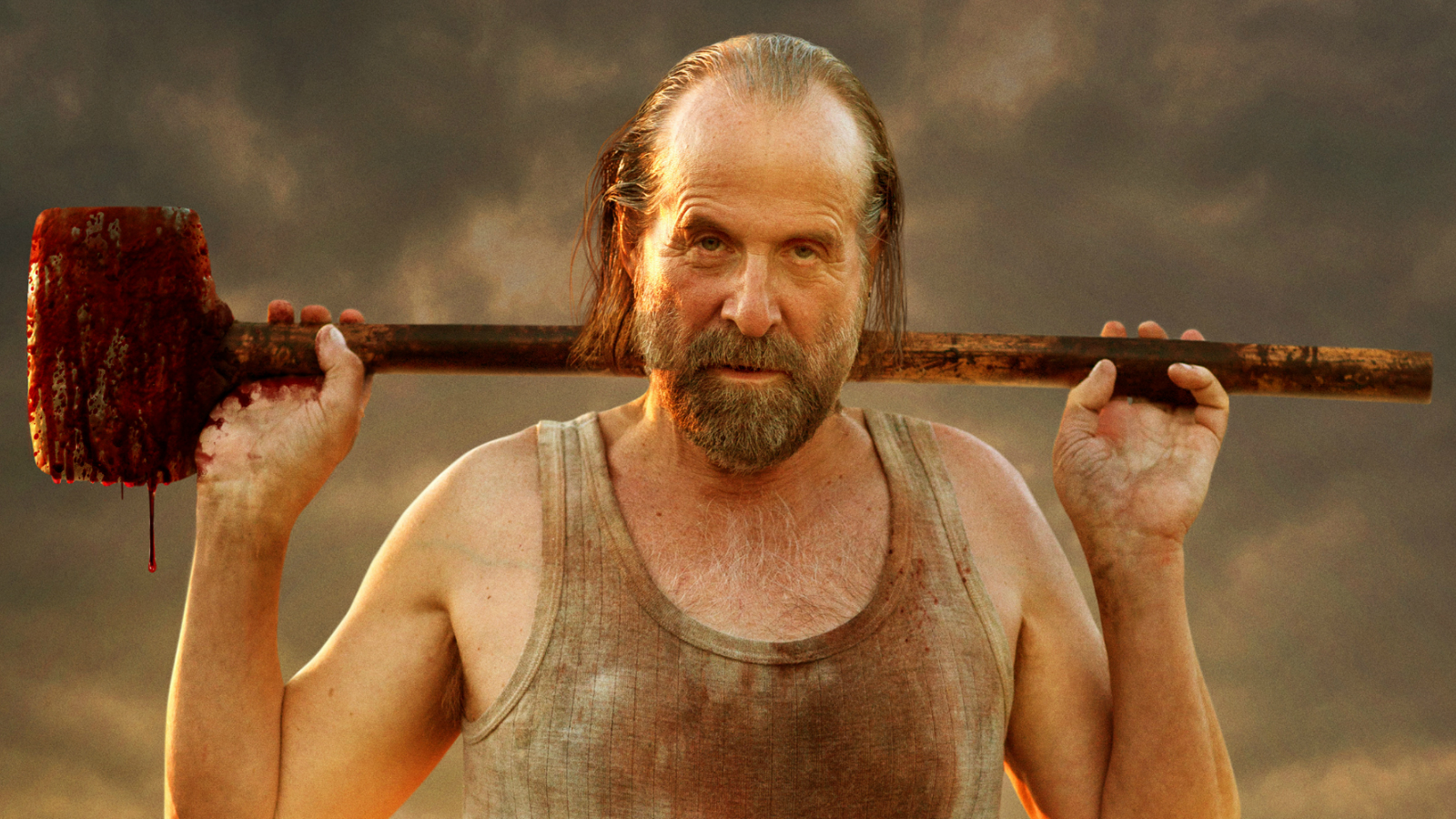GamesRadar+ Verdict
Media and Mr Nancy steal the show, and you can feel American Gods getting into the swing of things.
Why you can trust GamesRadar+
I should really stop expecting American Gods to be predictable. Hearing jazz music bleed through the fetid hold of a 15th century slave ship is certainly something. As is a god of death who’s only mildly intimidating, with a love of checkers and cigarettes. Still saturated with colour and style, episode 2, The Secret of Spoons, opens with a plea. Gods like pleas. They like humans who need their help. Let’s hope that someone comes to Shadow’s aid too, as the premiere closed on him getting hoisted upwards by the neck...
Another coming to America story, this time we’re told how the spirit of stories and knowledge in African folklore came to the states. Decked out in a brightly-coloured suit among the slaves, Anansi (Orlando Jones) - or as we’ll know him, Mr Nancy - oozes timelessness. Jones’ portrayal is fickle, unquestionably a jester, yet burning inside with almost nihilistic fury. He’s not appeared to save the slaves. There’s no point, he says. With a guttural roar and briefly showing his true face as a rainbow-coloured spider, Mr Nancy incites them into a frenzy of utter destruction. His palpable thirst for havoc, exacerbated by Jones’ commanding tone, isn’t surprising. He already knows that his worshippers are doomed to centuries of oppression even after they’ve shed their chains. Jones’ jaw-dropping “you don’t know you’re black yet” line sends shivers down the spine. Giving the impression of someone whose rage fuels their laughter, he’s one half of the stand-out duo which dominates the episode.
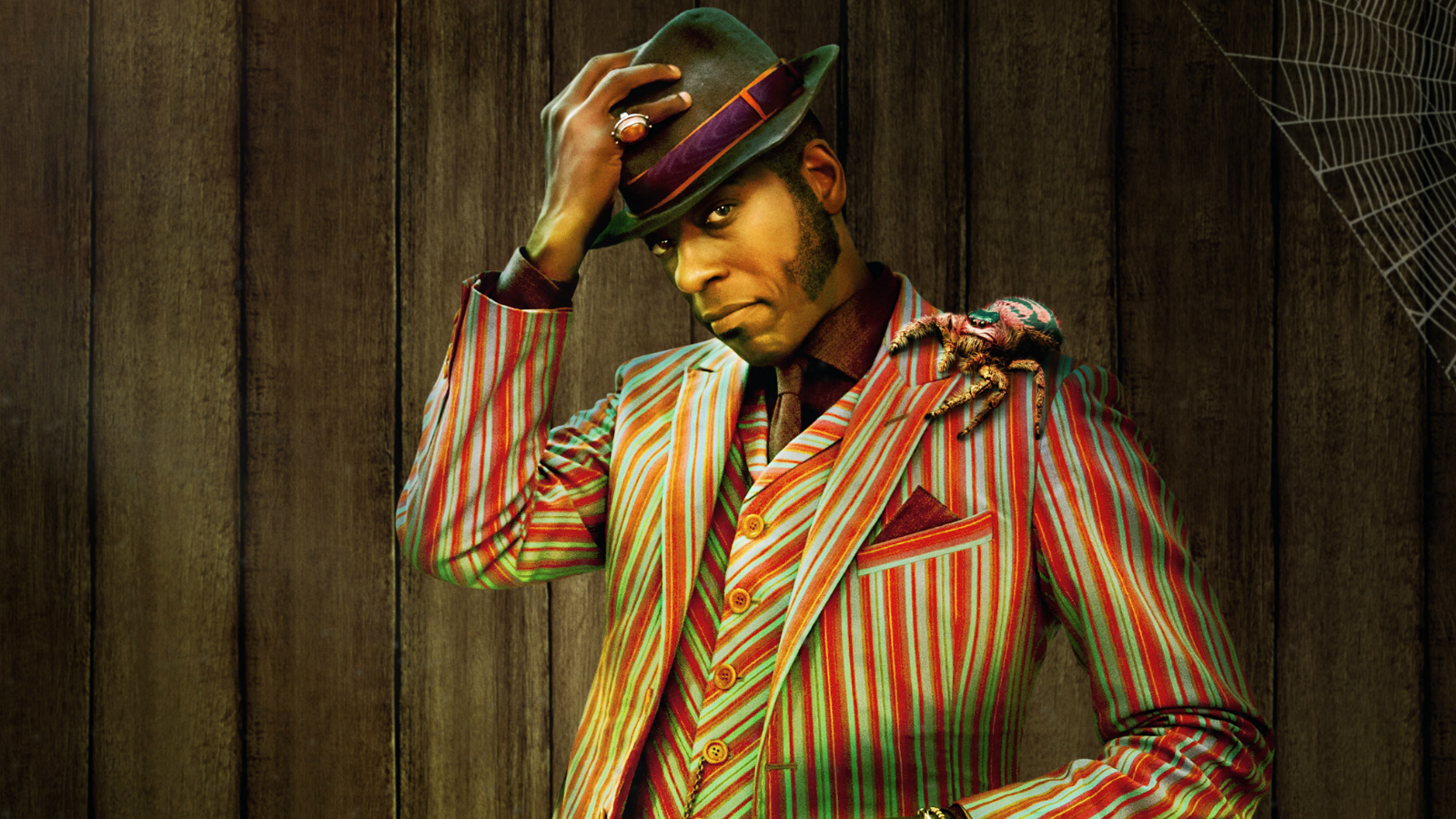
Leaving us with Mr Nancy in his spider form as the sole survivor of the burning ship, it’s time to revisit the recently ‘lynched’ Shadow. This is the word he spits out as he confronts Mr Wednesday, ready to call it quits right there, and you discover that angry Shadow is the best. When Whittle dips into these moments of intense emotion, you suddenly understand just how inscrutable his portrayal of Shadow usually is. Mr Wednesday at first appears to shrug off his complaints, instead showcasing his contempt of the modern gods. Talk about a dick move. But then McShane’s voice dips into a tone that, for a second, convinces you he’s a god. Warning Shadow against assuming he isn’t angry, I’m glad Wednesday is on Shadow’s side. Whenever you think the gods aren’t intimidating enough, an odd line will slip out that makes you sit up and take notice. It’s a thoroughly enjoyable pattern.
One more day left in Eagle Point, where Shadow and Laura’s home is. One more day for Shadow to say goodbye to Laura. Packing up their home (apparently he’s moving out), he stumbles upon Laura’s phone. Don’t do it, you plead with him, as he unlocks the screen. Don’t tap that icon, Shadow. Don’t read her conversation with Robbie. Don’t… god damn it, Shadow. Their texts are brief, but one scroll upwards brings a dick pic into view. Even after that, however, Laura appears in another of Shadow’s dreams, comforting him with a sing-song voice. I’d like to see her edge. Dream Laura’s soft kindness is starting to get irritating.
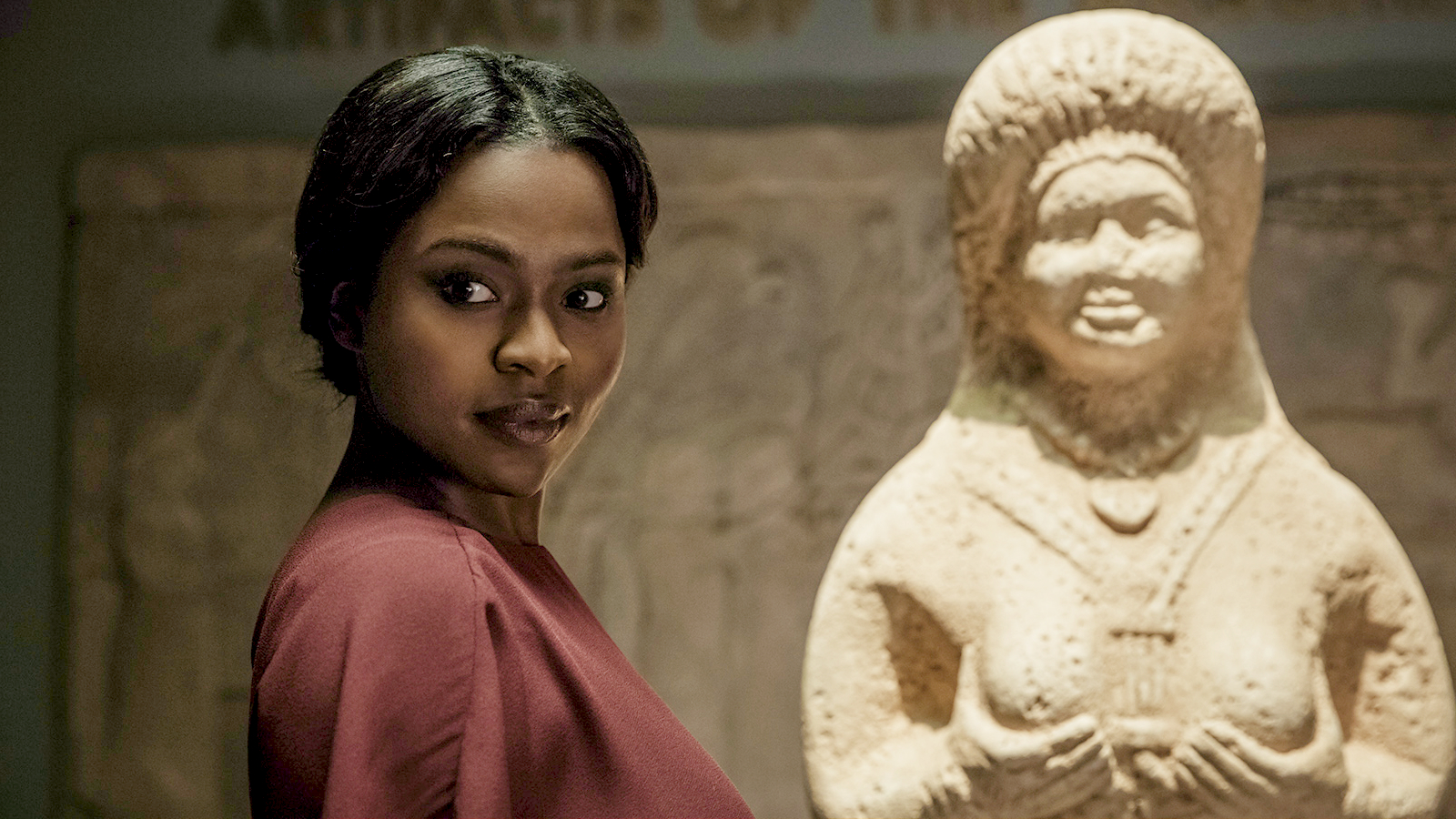
Shadow isn’t too fussed about leaving Eagle Point. Motoring down the dusty roads with Mr Wednesday, the god deposits a shopping list with him and waves him off. Exceptional camerawork catches the irritation of having that one wobbly wheel on your shopping cart, then zooms outwards to show just how tiny Shadow is in comparison to the supermarket. It’s a not-so-subtle reminder that he’s a small part in the world of American Gods. Conveying at the same time just how much one supermarket sells, a monument to consumerism, it’s the perfect introduction to Media (Gillian Anderson).
Sauntering down the electronics aisle, at first she blends in. Flickering onto a TV screen, her black and white face gazes out. Decked out to look exactly like Lucille Ball of I Love Lucy fame, Anderson’s mimicry is on point. Bobbing her head just like the TV star, her voice is saturated in that ‘50s pronunciation and yet I don’t see Ball. I don’t see Gillian Anderson either. I see Media. She’s been around a while, meaning she’s wiser than Technical Boy. Three screens (which Shadow’s just tried to unsuccessfully unplug) flicker with her picture while she talks to Shadow as an equal. Despite him turning down her job offer, I find myself tempted to join her. A fact which I’m convinced she knows, as it can’t be coincidence that the fourth wall breaks the next minute. In a phenomenally clever bit of writing, for a second Media locks eyes with you, her screen blinking into colour and becoming one with yours. Tales of people worshipping her by watching on phones, tablets, and TVs make me squirm. Oh shit, she’s talking about me. Gulp. Shadow is just as freaked out as I am, and legs it back to Mr Wednesday.
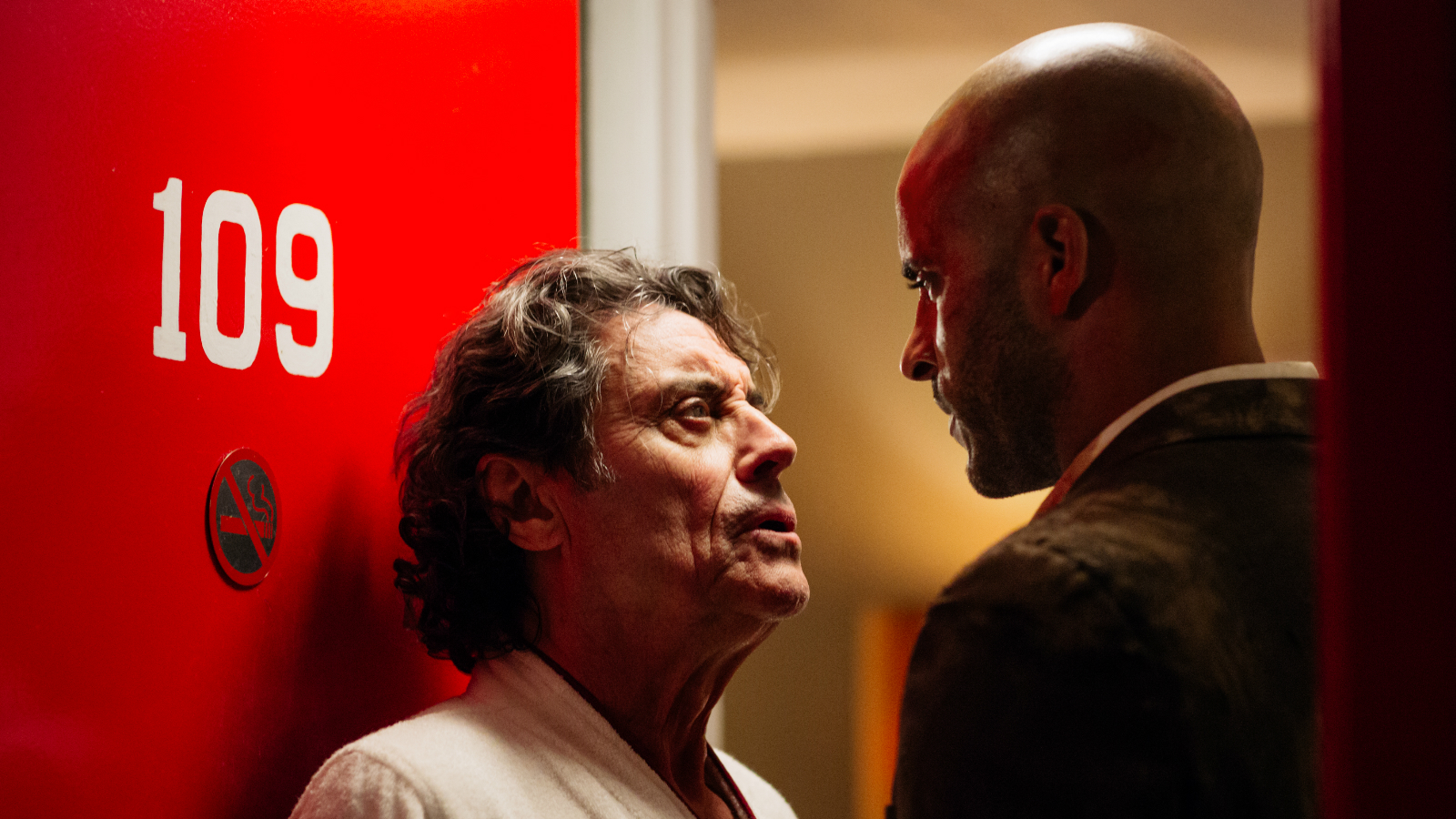
Bilquis (Yetide Badaki) pops up again here. Boy, has she been busy. Consuming multiple lovers, one after another, she’s getting more powerful. At least, I think she is. Once again her scene is isolated from the rest of the plot. So when she goes to a museum to gaze upon an old statue of herself, I’m not entirely sure what the show’s trying to tell me. Revisiting the glory days for sure - but is she living in the past, or due to make an almighty comeback? I don’t have a clue. It’s definitely time to see Bilquis interact with another God.
Time to give out those gifts Shadow picked up in the supermarket. Turning up at a block of flats in Chicago, we’re introduced to Zorya Vechernyaya (Cloris Leachman), a Russian goddess. She lives with her two sisters (one goes unnamed, another is busy sleeping) and Leachman’s depiction is sharp, funny with pitch-perfect comedic timing, and a stickler for hospitality. Inviting Mr Wednesday to stay (with a sigh) as she drains the vodka bottle he’s just given her, there’s one last character we’ve yet to meet.
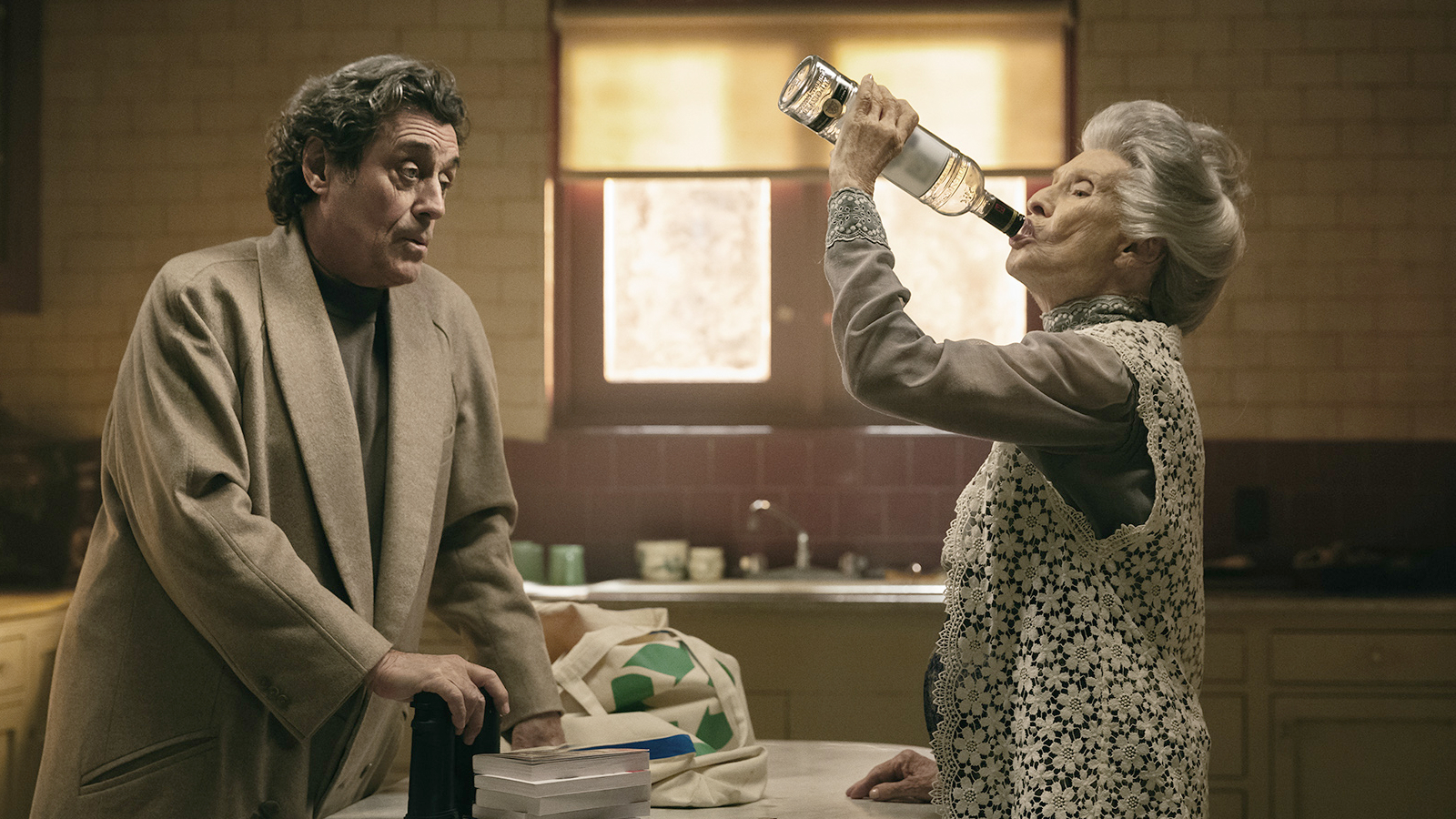
Czernobog (Patrick Stormare) is not at all what I expected from a god of evil. And I couldn’t be happier about it. Granted, he’s a little violent, chucking a lamp at Wednesday when he asks Czernobog to join him (by the way, that means no). Yet he cracks a genuinely happy grin when he’s talking about how much he enjoys his job in a slaughterhouse, describing the craft of killing with great glee. But then he goes on to talk about how his dark hair meant he was pushed into being ‘the evil one’, whereas his brother’s fair hair made everyone assume he was the good guy. Stormare’s half-amused tone communicates how bitter he is, making you question how much choice he had in the god-of-evil matter. Yet those black, dead eyes Stormare does so well return every now and again. Especially when he wagers Shadow’s life on a game of checkers. Handling his hammer with pride to show just where Shadow will be hit if Czernobog wins, for a short moment blood wells over his hands. Blood suits Stormare. He is H U N G R Y.
Shadow loses. Uh oh. Yet somehow I’m not scared, just curious as to how he’ll get out of it. Because he must do. Right?
While here at GamesRadar, Zoe was a features writer and video presenter for us. She's since flown the coop and gone on to work at Eurogamer where she's a video producer, and also runs her own Twitch and YouTube channels. She specialises in huge open-world games, true crime, and lore deep-dives.
